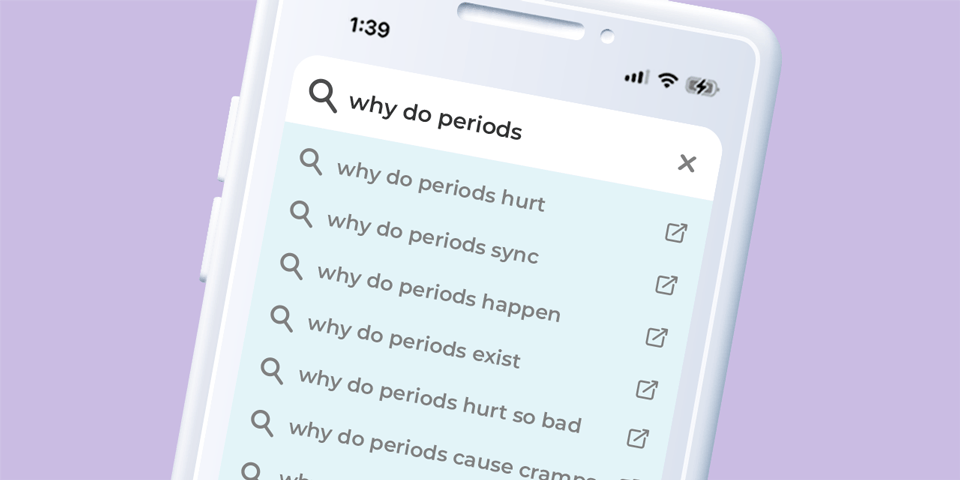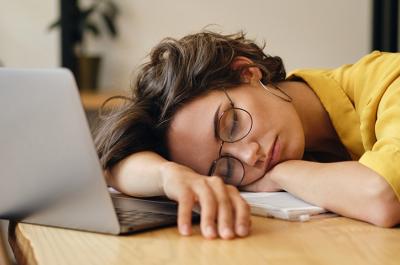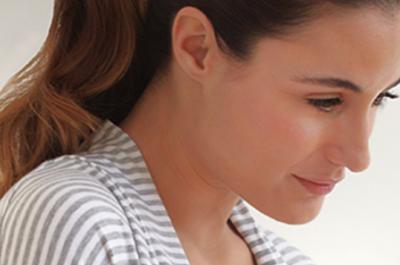7 (more) period questions you’ve always wanted to ask

We’ve already answered seven of your (perfectly normal) period questions. Now, we’re back with more insights to help demystify that ‘time of the month’ — and help you feel more comfortable during your period.
In this article
1. Can I shower when I have a tampon in?
Yes, you can take a shower with a tampon in. But keep in mind that tampons will absorb water as easily as they absorb blood. That’s why it’s a good idea to replace your tampon with a new one right after you shower — just like you would after swimming or taking a bath.1
Speaking of baths...
2. Can I take a bath while on my period?
Yes. A nice, warm bath is a perfectly safe and hygienic way to relax during your period. Light an aromatherapy candle, pop on your favorite playlist and soak away the stress or soothe cramps from PMS (premenstrual syndrome).
If you’re concerned about staying clean in the tub, know that potential leaks don’t pose any risks to your health. And you can always take a quick rinse afterwards, just in case.
Here are a few ways to plan an easy, relaxing soak in the tub while you’re on your period.
Before your bath:
- Rinse your pubic area. Rinsing around your vaginal opening (not inside) will wash away any excess or dried menstrual blood, which may help you feel more comfortable sitting in the tub.
- Empty your menstrual cup (if you use one). Emptying your menstrual cup before you bathe reduces the chances of leaks while you’re in the tub — and will leave you nice and clean afterwards.
During your bath:
- Don’t overclean your pubic area. Your vagina is a self-cleaning machine, so under normal circumstances it doesn't need assistance. Overcleaning using harsh soaps or douching2 (which doctors do not recommend) can alter your vagina’s natural pH levels, and could even result in vaginitis.3
- Relax and enjoy. The warmth of the water and time to yourself can work wonders for tension, cramps and stress.
After your bath:
- Rinse off and pat yourself dry. Be gentle, as areas like your breasts or pubic region may be extra sensitive during your period.
- Replace your tampon (if you use tampons). In addition to menstrual blood, tampons also absorb water. If you had a tampon in during your bath, replace it with a fresh one when you’re done.
3. Why am I so hungry before my period?
Before your period, your hormone levels, mood and metabolism will change — and those changes could easily affect your appetite. Estrogen and progesterone are two hormones that fluctuate throughout your menstrual cycle. While estrogen can reduce your appetite, progesterone increases it.4 Since progesterone is at its peak right before your period, that could be why you have pre-period munchies.
Although your specific period cravings might include chocolate, refined grains, sweets or salty snacks, there are other foods that could help relieve your PMS symptoms. Try to eat a balanced diet and drink plenty of water before, during and after your period. (But treat yourself every now and then, too.)
Great foods to reach for to feel better:
- Fresh fruit and leafy green vegetables. Eating more fiber and calcium can lower your estrogen levels to relieve menstrual cramps.5
- Whole grain bread, pasta and cereals. Whole grains, like brown rice or oats, also help reduce inflammation to relieve cramps.5
- Water. Lots of it. Staying hydrated can help reduce cramps, bloating and pain intensity.6
Foods to enjoy in moderation:
- Processed foods. Processed foods typically have less fiber than whole foods and may not help with menstrual pain from PMS.5
- Sugar. Eating high-sugar foods may increase inflammation and worsen your bloating and period cramps.7
- Caffeine or alcohol. Drinking caffeine or alcohol may make your menstrual cramps more painful.8
4. Do I burn more calories while on my period?
The short answer? No, not really. While fatigue or other symptoms may make it feel like you’ve been burning a lot more calories than usual, your period doesn’t significantly alter your metabolism. Your resting metabolic rate (RMR) is the base amount of energy, or calories, your body needs to function. Research has shown there’s a small increase in your RMR in the luteal phase of your cycle, but it’s not a major change for most people.9
5. Do I gain weight while on my period?
Yes, it’s possible (and completely normal) to gain a few pounds on your period. And there are many potential reasons why — including water retention11, extra cravings5, less exercise12 and not enough sleep.13
Water retention during your period
Water retention, or edema10, is swelling that happens from excess fluid in your body’s tissues. Like a lot of PMS symptoms, hormone fluctuations are the likely cause of water retention — especially just before your period. During this time, you may also notice an increase in bloating. All this extra water in your body can lead to temporary weight gain.11
To help reduce water retention during your period, try:
- Eating foods with less salt.10
- Taking magnesium supplements (with the go-ahead from your doctor).10
- Doing aerobic exercises and relaxation techniques.10
Period food cravings
Hormonal changes, stress and mood shifts may have you digging in the cupboard to satisfy all kinds of cravings. But eating more salty and sugary foods could actually make other PMS symptoms, like bloating and weight gain, worse.5
Changes in exercise while you’re on your period
From cramps to shifting emotions, PMS symptoms can make you feel less interested in sticking to your regular activity levels or exercise routine, which could lead to a little weight gain. But exercising on your period (as you’re able) can be a great way to keep up with healthy habits, and maybe even get a little relief from period discomfort.
For many women, regular aerobic exercise is a great way to lessen PMS symptoms like fatigue or depression.12 Not only can a little walking, running or cycling get your heart pumping — exercise releases endorphins to help you feel better mentally, too. If you’re not up for much aerobic activity, some gentler exercises like stretching or yoga can be a great alternative.
Not getting enough sleep
Sleep gives your body the rest it needs to function properly, and it’s an important part of maintaining a healthy metabolism. Getting enough rest can also help you make healthy decisions when it comes to taking care of yourself — from what to snack on to when to take a break.13 Plus, facing other symptoms well-rested can feel a lot better than dealing with them when you’re tired. It’s recommended that you aim for seven to eight hours of sleep to feel recharged and ready for the next day.
6. When does period weight go away?
Generally, your body weight will return to normal within a few days of the end of your period. As soon as your hormones balance out, your body will start to return to its pre-period state. Of course, every body is different, and that includes the pace at which you gain or lose weight around your period.
Healthy habits like eating a balanced diet, getting regular exercise and keeping a good sleep schedule may be harder to maintain during your period. And it’s important to give yourself grace and be patient. Once you’re feeling up to it, getting back into a groove is a great way to start (and keep) feeling better.
Throughout your cycle, try to get enough rest, eat nourishing meals and drink plenty of water. (We’ve already said that a few times, but water really does help.)
How much blood do I lose while on my period?
In most cases, it’s normal to lose about two to three tablespoons of blood over the course of your period.14 And keep in mind that menstrual flow isn’t 100% blood — it also contains vaginal fluid and uterine lining.15 That makes it a little trickier to accurately measure blood loss.
Menstrual bleeding will vary from person to person, and some may have lighter periods than others. If you’re experiencing heavy menstrual bleeding, also called menorrhagia, or menstrual bleeding that lasts more than 7 days, you should see a doctor.14
When it comes to your body, it's important to pay attention to what it’s telling you and advocate for your health. If you have more questions about your period, or have special concerns, it’s best to talk to your doctor. There’s no such thing as a silly question — our bodies do a lot of amazing and surprising things. And asking what you can do to keep yours healthy is always a good idea.
7 questions about your period you’ve never dared to ask

Chances are that you learned the basics about your period sometime ago but not what you really want to know. And what you really want to know, you may be too embarrassed to ask.
Rest assured, you’re not the only one and we've got answers to seven (perfectly normal) period-related questions.
Sources
- U.S. Food and Drug Administration. “The Facts on Tampons—and How to Use Them Safely” 2020. Accessed 06 Sept. 2022.
https://www.fda.gov/consumers/consumer-updates/facts-tampons-and-how-use-them-safely - Office on Women’s Health. “Douching” Accessed 23 Aug. 2022.
https://www.womenshealth.gov/a-z-topics/douching - The American College of Obstetricians and Gynecologists. “Vaginitis” Accessed 23 Aug. 2022.
https://www.acog.org/womens-health/faqs/vaginitis - Angelica Lindén Hirschberg. “Sex hormones, appetite and eating behaviour in women.” National Library of Medicine. 2012. Accessed 29 Aug. 2022.
https://pubmed.ncbi.nlm.nih.gov/22281161/ - Physicians Committee for Responsible Medicine. “Using Foods Against Menstrual Pain” Accessed 23 Aug. 2022.
https://www.pcrm.org/good-nutrition/nutrition-information/using-foods-against-menstrual-pain - Behnaz Torkan, Mahsasadat Mousavi, Samira Dehghani, Leila Hajipour, Narges Sadeghi, Marzieh Ziaei Rad, Ali Montazeri. “The role of water intake in the severity of pain and menstrual distress among females suffering from primary dysmenorrhea: a semi-experimental study” National Library of Medicine. 2021. Accessed 29 Aug. 2022.
https://pubmed.ncbi.nlm.nih.gov/33509179/ - Mayo Clinic. “Nutrition and healthy eating” Accessed 29 Aug. 2022.
https://www.mayoclinic.org/healthy-lifestyle/nutrition-and-healthy-eating/in-depth/how-to-use-food-to-help-your-body-fight-inflammation/art-20457586 - Mahbobeh Faramarzi and Hajar Salmalian. “Association of Psychologic and Nonpsychologic Factors With Primary Dysmenorrhea” National Library of Medicine. 2014. Accessed 29 Aug. 2022.
https://www.ncbi.nlm.nih.gov/pmc/articles/PMC4222008/ - M. Campolier, S. Thondre, H. Lightowler. “Resting metabolic rate and the menstrual cycle” Cambridge University Press. 2015. Accessed 23 Aug. 2022.
https://www.cambridge.org/core/journals/proceedings-of-the-nutrition-society/article/resting-metabolic-rate-and-the-menstrual-cycle/FA5305059409B786DB3C4AE19183ECFB - Mayo Clinic. “Water retention: Relieve this premenstrual symptom” Accessed 23 Aug. 2022.
https://www.mayoclinic.org/healthy-lifestyle/womens-health/in-depth/water-retention/art-20044983#:~:text=Premenstrual%20water%20retention%20is%20likely,the%20start%20of%20their%20periods - Mayo Clinic. “Premenstrual syndrome (PMS)” Accessed 20 Sept. 2022.
https://www.mayoclinic.org/diseases-conditions/premenstrual-syndrome/symptoms-causes/syc-20376780 - The American College of Obstetricians and Gynecologists. “Premenstrual Syndrome (PMS)” Accessed 23 Aug. 2022.
https://www.acog.org/womens-health/faqs/premenstrual-syndrome?utm_source=redirect&utm_medium=web&utm_campaign=otn - Federico Salfi, Marco Lauriola, Daniela Tempesta, Pierpaolo Calanna, Valentina Socci, Luigi De Gennaro, and Michele Ferrara. “Effects of Total and Partial Sleep Deprivation on Reflection Impulsivity and Risk-Taking in Deliberative Decision-Making" 2020. Accessed 29 Aug. 2022.
https://www.ncbi.nlm.nih.gov/pmc/articles/PMC7261660/ - “Your menstrual cycle,” (March 16, 2018), Office on Women’s Health, U.S. Department of Health & Human Services,
https://www.womenshealth.gov/menstrual-cycle/your-menstrual-cycle. - Heyi Yang, Bo Zhou, Mechthild Prinz, Donald Siegel. “Proteomic Analysis of Menstrual Blood” National Library of Medicine. 2012. Accessed 23 Aug. 2022.
https://www.ncbi.nlm.nih.gov/pmc/articles/PMC3494145/#:~:text=Menstrual%20blood%20is%20composed%20of,which%20is%20shed%20during%20menstruation




